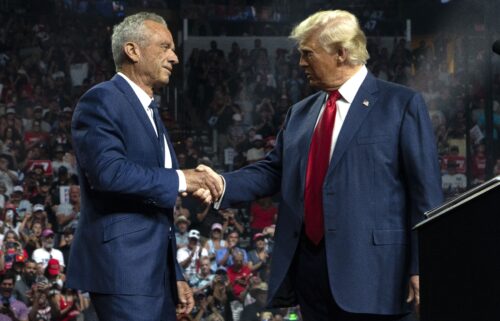Takeaways from the Trump Organization and Allen Weisselberg indictment
By Erica Orden
On Thursday, New York prosecutors charged the Trump Organization and its chief financial officer, Allen Weisselberg, with running a 15-year alleged tax scheme designed “to compensate Weisselberg and other Trump Organization executives in a manner that was ‘off the books.”
It is the first criminal case against former President Donald Trump’s company, one he has derided as a political prosecution.
Here’s what you need to know from the indictment:
The charges
The crux of the alleged scheme is that the company gave fringe benefits, or perks, to executives including Weisselberg as part of their income, but didn’t pay required payroll taxes on those benefits.
Meanwhile, the recipients of the perks didn’t report them as income and thus didn’t pay income tax on them.
Weisselberg allegedly received a wide array of benefits
On top of his direct compensation from the company, Weisselberg received rent on an Upper West Side apartment, utilities and garage expenses paid for by the Trump Organization, according to the indictment. He and his wife each received a leased Mercedes-Benz. He received nearly $30,000 in cash over a six-year period to pay personal holiday gratuities. He received new beds, flat-screen TVs, carpeting and furniture for his home in Florida.
Trump himself wasn’t charged, but he is referenced
According to the indictment, Weisselberg received perks including $359,058 in tuition payments for Columbia Grammar & Preparatory School for two of his grandchildren. Those payments were made by checks from Donald Trump’s account signed by Trump himself, and later from the Donald J. Trump revocable trust, the indictment said.
The payments for Weisselberg’s grandchildren were “indirect compensation” and were not included on Weisselberg’s W-2 forms, and no income taxes were withheld by the Trump Organization or Trump Payroll Corp. in connection with the tuition payments.
No other individuals were charged Thursday
The Trump Organization, an entity called Trump Payroll Corp. and Weisselberg were charged Thursday — 10 charges brought against the companies and 15 against Weisselberg. But no other individuals have been charged as part of the district attorney’s investigation. The charges do reference an unindicted co-conspirator, which the indictment describes as a person who helped Weisselberg evade taxes.
“From at least 2005 through the date of this indictment, the named defendants and others, including Unindicted Co-conspirator #1, agreed to and implemented a compensation scheme with the object of enabling Weisselberg to underreport his income to federal authorities, and thereby evade taxes and falsely claim federal tax refunds to which he was not entitled,” the indictment says.
A person familiar with the investigation told CNN the unindicted co-conspirator is Jeff McConney, the Trump Organization’s long-time controller.
The investigation isn’t over
The Manhattan district attorney’s office has emphasized that the investigation is ongoing.
The indictment focuses largely on Weisselberg, whose cooperation prosecutors have spent months trying — and failing — to secure. Weisselberg pleaded not guilty Thursday, but if he were to change his mind and decide to assist prosecutors, they could use his testimony and evidence to pursue others.
Additionally, prosecutors have explored a wide range of topics in the course of their more than two years of investigation, and they could add additional charges in the future in what’s known as a superseding indictment.
The-CNN-Wire
™ & © 2021 Cable News Network, Inc., a WarnerMedia Company. All rights reserved.
CNN’s Sonia Moghe and Kara Scannell contributed to this report.

